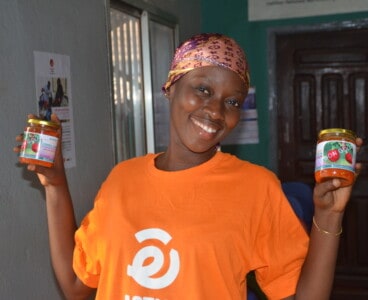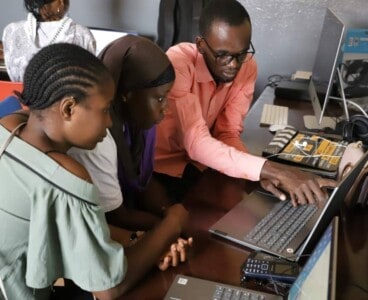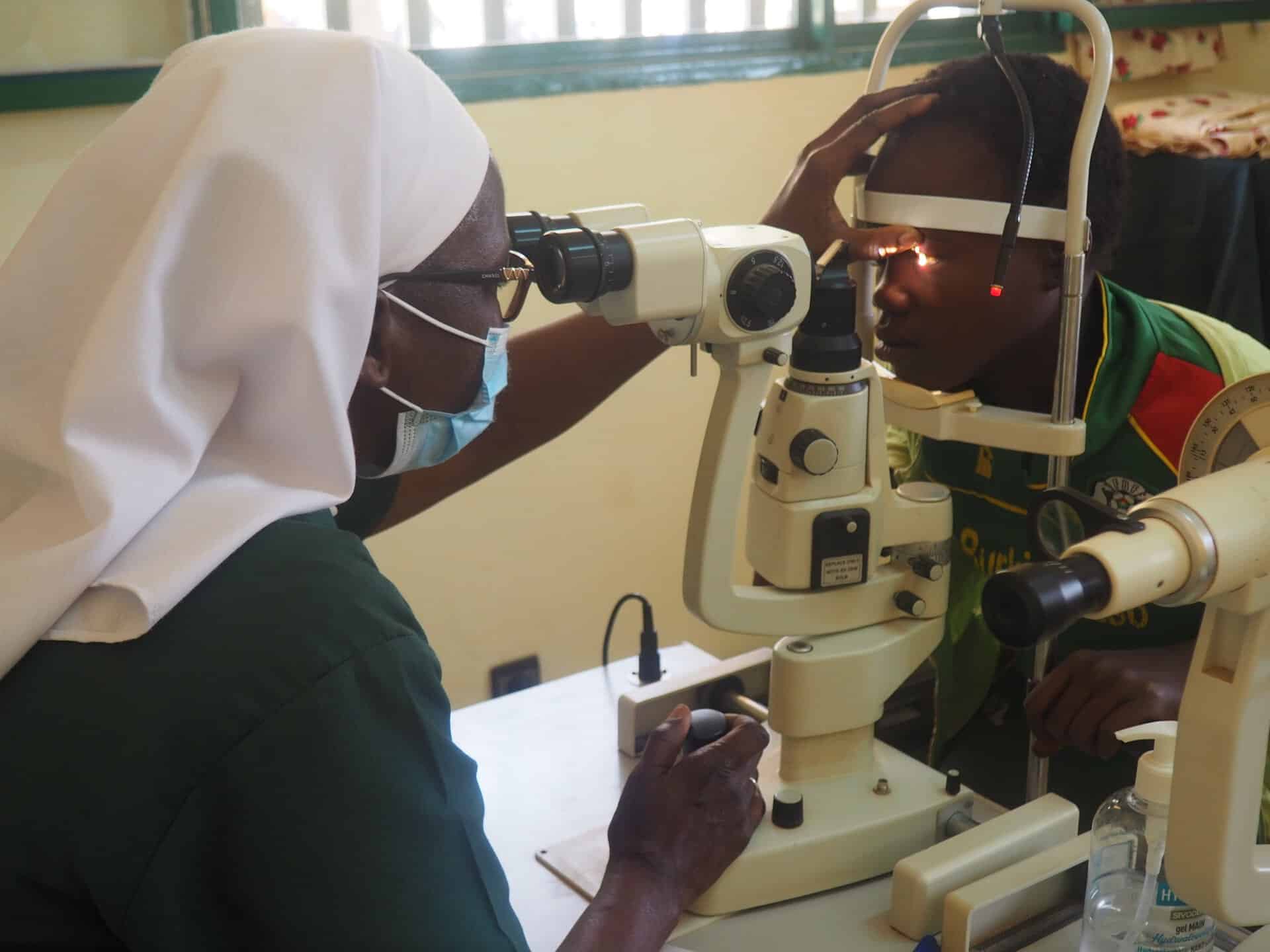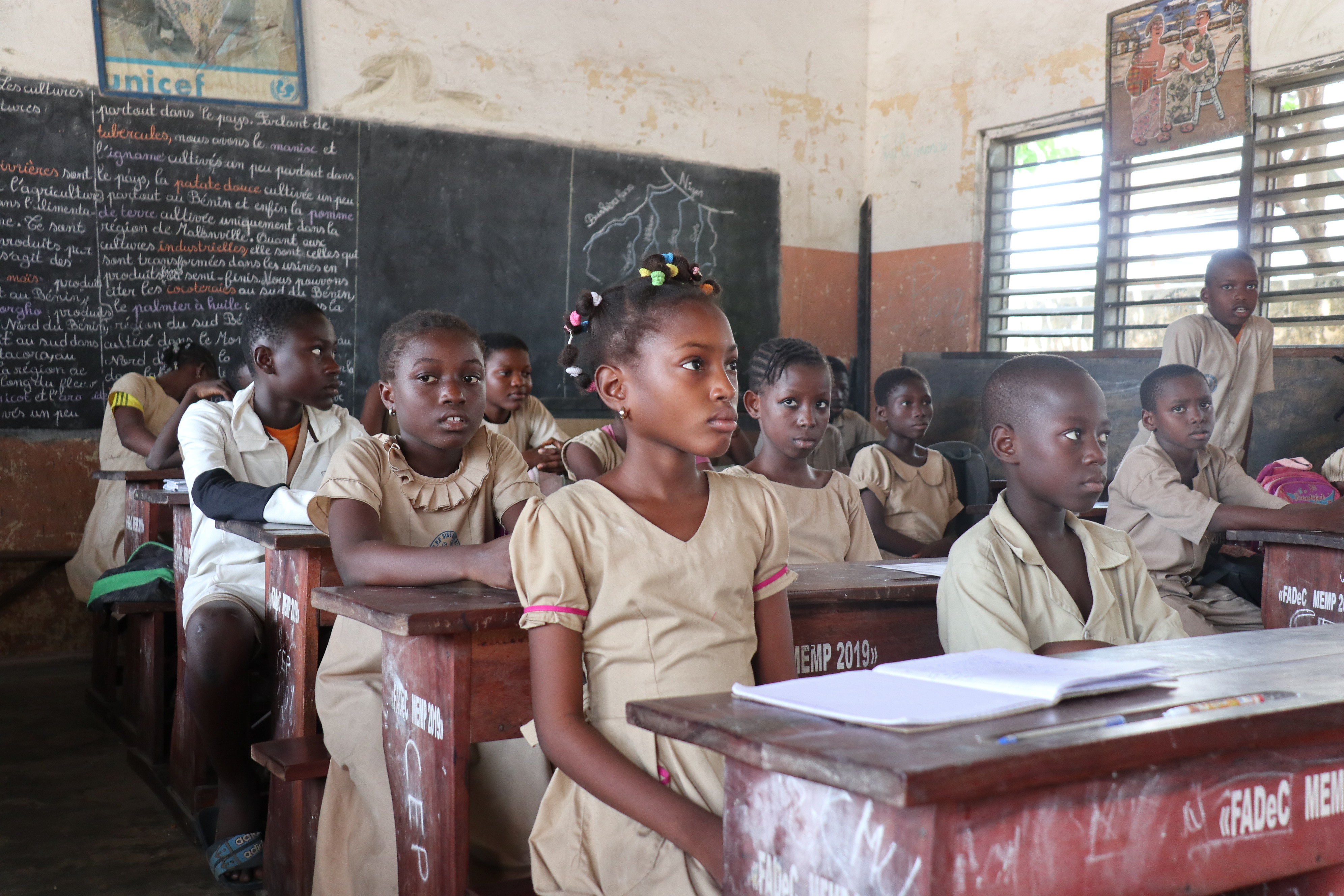Action Education is continuing its Skills for Tomorrow programme in Guinea. Its aim is to develop the skills of young people to promote their employability, entrepreneurial skills and civic participation.
Integrating into society and finding a job remain two major challenges for many young people in sub-Saharan Africa. The Skills for Tomorrow programme is aimed at young people aged between 15 and 35 who are NEET (not in employment, education or training) in the suburbs of major cities in West Africa. These peri-urban areas combine a number of exclusion factors (high unemployment rate, difficulties in accessing funds to support entrepreneurship, low rate of access to education, etc.). The programme is run in partnership with Solidarité Laïque and Guinean civil society organisations, with the support of theFrench Development Agency (AFD).
The programme's approach is essentially based on the Laboratoires d'Innovation Sociale (LABIS), which are equipped with a wide range of resources (audio and video recording studio, media library, coworking space, etc.). These are places where young people can meet, learn and be creative. Their aim is to encourage the emergence of individual and collective initiatives for innovative employment and proposals for the development of the region through civic action. A range of activities are on offer, including mentoring by experienced coaches, individual coaching and networking sessions.
Directing young people towards promising careers
The Laboratoire d'Innovation Sociale (LABIS) is located in an impoverished area of Conakry. Since the Skills for Tomorrow project began in 2020, more than 1,000 young people have benefited from the support provided by the LABIS in Conakry through a number of skills-building initiatives. The training courses cover a range of fields, including IT, audiovisual, digital communications, crafts, plastic waste collection and management, graffiti artists, etc. LABIS Conakry helps women to become more independent, for example by promoting the organisation of cooperatives.
Encouraging young people to set up their own business
Conferences are regularly organised to present the main stages in the process of setting up a business, with particular emphasis on drawing up a business plan, finding finance and starting up.

Mahawa Camara testifies:
"You can start from a simple training course to create your own business. Thanks to the training I received as part of the Skills for Tomorrow programme, my friends and I have set up a cooperative to process agri-food products. With the support of the programme, we received help to finance our equipment. Today, we produce and sell tins of chilli puree certified by the Office National de Contrôle Qualité!
Digital technology to boost young people's initiatives
Digital communication is becoming a major issue for companies and organisations concerned about their online visibility. The Skills for Tomorrow programme organises training sessions on the basics of digital communication, including content creation for social networks and strategy development.

Aminata Koné said:
"Today, digital technology is essential. Thanks to the training, I've discovered how to create a logo, open a Facebook page and run it. Our cooperative, which works on plastic waste management, now has the tools it needs to better reach its audiences on social networks.
Young people and illegal emigration
LABIS organises exchanges as part of the civic engagement component of the Skills for Tomorrow programme. The aim is to give young people the opportunity to speak out on issues that concern them.
![]()
On 21 July 2023, around thirty young people discussed the consequences of irregular emigration, in particular the risks to their safety, the fuelling of criminal networks and human trafficking, but also the flight of the most enterprising people who could be agents of change in their own countries. The debates helped to deconstruct some of the myths surrounding emigration to Europe.












